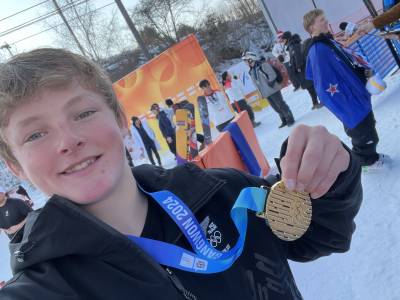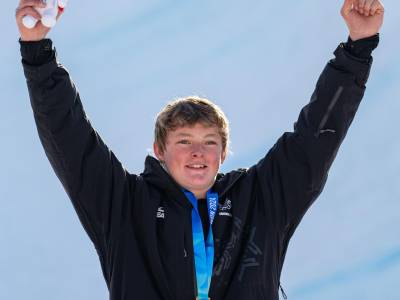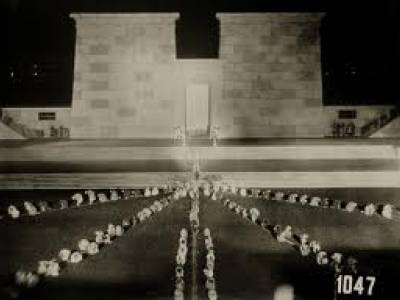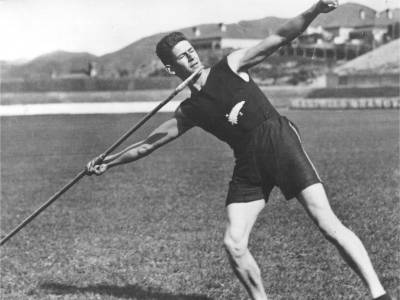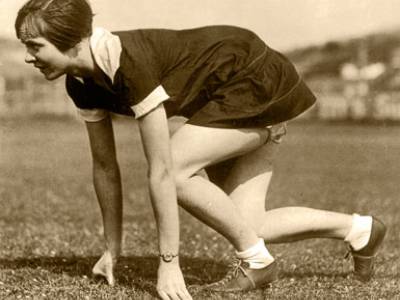Shortly before his death in 1994, Arthur
Porritt was musing on the irony of his life. Through his long life, Porritt
achieved an enormous amount, yet he considered he was best remembered for
something he did way back in 1924 in less than 11 seconds.
Porritt earned the Olympic 100m sprint bronze medal at Paris that year, behind
the legendary Harold Abrahams and Jackson Scholz. That final has been made more
famous by the award-winning film Chariots of Fire. Porritt was New Zealand team
captain and flag-bearer at Paris.
He felt he was better over 200m than 100m, and, in fact, reached the 200m
semi-finals in Paris. But he said he was so excited by his bronze medal in the
shorter event that he did not concentrate as he might have in the 200m.
(Until Abrahams' death in 1978, he and Porritt and their wives had dinner at
7pm on July 7, the precise time of the Paris 100m final.)
Porritt was Governor-General of New Zealand from 1967-72. He was a life member
of the International Olympic Committee, was awarded the US Legion of Merit for
his services during World War II, and for more than 30 years was surgeon to the
royal family.
His was a life of glittering achievement, and he ranks among the really great
New Zealanders, yet, as he said, that Olympic medal remained a continuing
influence throughout his life.
Porritt, the son of a GP, attended Wanganui Collegiate, and then pursued a
medical career. In 1923, after three years at Otago University, he was awarded
a Rhodes Scholarship to Oxford University.
By then he had shown himself to be New Zealand's top sprinter and a leading
hurdler. He won his only New Zealand title when he finished third to visiting
American Morris Kirksey and the Australian, "Slip" Carr, in the 100
yards in 1923.
For decades after winning his bronze medal at Paris, Porritt remained closely
linked with the Olympics. He was chosen to compete at the 1928 Amsterdam
Olympics, but could not run because of injury, though he still captained the
team.
He was elected to the International Olympic Committee in 1934 – the youngest of
the IOC's 20 members - and remained on the committee until 1967, when he became
the New Zealand Governor-General. He was then accorded life membership of the
IOC. He was from 1961-67 the first President of the IOC Medical Commission.
Porritt was manager of the 1934 New Zealand team to the Empire Games in London
and later became chairman of the British Empire and Commonwealth Games
Federation, serving for nearly 20 years until resigning in 1968.
In 1936 he was the New Zealand Olympic team manager and made the ultimately
correct decision that Jack Lovelock should run the 1500m in Berlin and bypass
the 5000m.
He presented Olympic gold medals to Yvette Williams (1952), Murray Halberg
(1960) and Peter Snell (1960 and 1964).
Besides his sports contributions, Porritt excelled elsewhere.
He became a house surgeon at St Mary's Hospital, London in 1936 and later that
year was appointed surgeon to the Duke of York, who soon afterwards was crowned
king. He was promoted to King's Surgeon from 1946-52, and was Sergeant-Surgeon
to the Queen until 1967.
Porritt was knighted in 1950 and became a baronet in 1963. When he was elevated
to the Peerage in 1973, he chose to honour his home town and became Lord
Porritt of Wanganui and Hampstead. His son Jonathon, a noted environmentalist,
now holds the title of Lord Porritt.
During World War II Porritt served in Europe and Africa. He became consultant
surgeon to the 21st Army Group, which had a role in the Normandy landings and
was at Dunkirk when the evacuation was completed.
It was a full life, well led. Amazing then that with such a massive dossier of
achievements, he should still be best remembered for something he achieved so
quickly so long ago.
Porritt was inducted into the New Zealand Sports Hall of Fame in 1990.
Tweet Share
Arthur's Games History
-
Olympic Summer Games Amsterdam 1928
-
Olympic Summer Games Paris 1924
- 3



